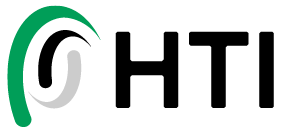The Role of Social Media in Career Transition
Depending on your technological saavy, your perception of social media and its’ importance vary. During a career transition, it’s important to pay attention to a few key points regarding social media.
One overarching rule – Less is more. With the exception of LinkedIN.
As an HR professional, looking on social media is a natural part of recruiting someone. There are lots of things I can’t legally ask a candidate during an interview. So, why would you give me the access to this information on social media? With a few clicks, I can often access a public profile and ascertain marital status, number of children, and possibly religion or lifestyle choices. None of that is pertinent to the hiring decision I need to make, so don’t give HR professionals the access to that information.
Keep profiles on Facebook, Twitter, Instagram, Google+, or whatever other social media applications you might use private. You should be able to find these controls under the “Settings” tab of any given application.
However, when it comes to LinkedIN, you WANT to be seen by HR professionals.
HR Directors, Managers, and Recruiters are on LI all the time when they have an opening to fill. We often say that LinkedIn is “Facebook for business”. Your LI profile should reflect your resume, have an accurate depiction of your skills, and be 100% professional. Here are a few quick things to keep in mind:
- Your profile photo should be of just you, and should be a simple, casual professional headshot. No cropped photos out of a group where you were wearing a strapless dress at a wedding – you know where I’m going with that one.
- Put your job history in there! You can copy and paste sections from your resume into your LI profile. Remember, HR professionals are on LI searching for candidates to fill jobs they have. The more information and key words you have in your profile, the more likely they are to find you.
- Feel free to join groups – as long as they are relevant to your professional goals. You should never join groups reflecting political or religious affiliations or social views on LI. Remember, this is just for business.
- Don’t pay too much attention to endorsing people for skills or worrying about your skills listing. Instead, spend time recommending close colleagues who do great work, and seeking out recommendations from a few key managers or co-workers who can attest to the quality of work that you bring to the table. This will be a much better use of your time.
Use these tips and tricks to improve your social media presence and start catching the eyes of HR professionals everywhere!
